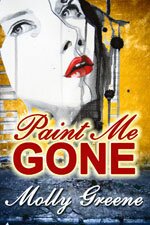by Linda White
 Publicity is a confusing area for many authors. The bottom line with publicity is that there is usually minimal cost (just the price of printed items you are distributing), but there is also minimal control of how the story you put out there is handled.
Publicity is a confusing area for many authors. The bottom line with publicity is that there is usually minimal cost (just the price of printed items you are distributing), but there is also minimal control of how the story you put out there is handled.
You can’t tell an editor how to write the interview, or tell a reviewer what to say about your book, just as you can’t insist that a bookstore owner keep a poster of your event beside the register for two months. You have to rely on goodwill, and request professional help as needed.
I’ll concentrate on self-publishing in this article – since that’s the focus of Molly’s blog – but even traditionally published authors need to contribute much effort to a publicity campaign. Many inexpensive things can be done to publicize a book, and much of it can be started very early. We’ll begin there.
A Year (or More!) Ahead
- Think about your goals and expectations. I always say that your Expectations have to match your Effort. Create your budget and plan your promotion accordingly.
- Write a nice short synopsis of your book, if you haven’t already. For publicity purposes, you will need something very brief, one or two lines, as well as something a couple paragraphs long.
- Write a nice professional bio. Look at other authors’ bios (on websites, on book jackets, etc). Focus on your life as a writer. Write a short and long version.
- Practice your elevator speech. This should focus on what you write, not the plot of your book. Short and sweet. “I write historical fiction with an emphasis on strong female characters.”
- Set up an author website. This should include a media section, a bio, some downloadable images, an events listing, and a way for people to buy the book. Check out other authors’ sites for ideas.
- Set up a professional email, whether it’s through your website or elsewhere. Gmail is okay, but it’s not the best presentation. Most web packages include an email with the domain.
- Set up some social media profiles. Consider Facebook, Twitter, and GoodReads. See which ones you like best. Ask around. Concentrate on those platforms that feel right for you. Just because everyone else is doing something doesn’t mean it’s where you should spend your time.
- Now, build your fan base online by engaging with others. Ask questions. Post relevant articles. Share your progress, whether you are self-publishing or publishing traditionally. Encourage others.
- Consider a Facebook author page. A business page is a more professional way to present yourself to the masses. Try to keep personal information off this page, but still be genuine.
- If you decide to blog, now is a good time to start. But don’t start a blog just because you think you should. Nothing is more sad than an outdated blog, with the last entry a year old. Think pros and cons: how do you really want to spend your time? What should you blog about? A blog can be a great way to jumpstart your online presence. Know that you have to give to get. If you go ahead with it, batch your content creation so that you can have something ready to post consistently.
- Have simple bookmarks or postcards designed and carry them with you. Everywhere. You can do this as soon as your book cover is final. Make sure there’s a way for people to contact you on there – your website, email or Twitter handle.
- Visit your local bookstore, whether it’s an indie or a chain. Get to know the folks there. Browse the shelves and figure out where your book might go (know that the store may not agree). See yourself giving a presentation to a standing room-only crowd. Find out who is in charge of events. Buy some books. Ask if you can leave a little stack of bookmarks next to the cash register.
- Visit your local library. Get to know the librarians by name. Find out who is in charge of events here. See if you can leave a stack of your materials next to the checkout, or they may have a space designated for community literature. Replenish the supply often.
- Go to networking events. Boots on the ground. You can start local with happy hour events. Branch out by attending writers conferences in other states, or attending events while on vacation. Get to know people. You’re not selling your book at this point – you are selling you.
- Go to other authors’ readings. Even if you don’t know them. The more readings you go to, the more ideas you will have when it comes time to do your own. Don’t overlook unusual venues.
- Take note of where readings occur and the sponsoring organization. Libraries and their Friends groups are great event hosts, as are fraternal organizations and of course, bookstores.
- Join a writers’ organization, like Sisters in Crime for mystery writers, the SCBWI for children’s authors, or something appropriate to your work that offers networking and professional events.
- Continue to engage on social media. Post content that takes your followers along on your book journey. Post your cover choices. Ask if anyone knows someone who runs a reading series that might have you. Use your network.
- Collect names of those who you wish to send an ARC to. If you have an opportunity, try to meet some of your local media people. At the very least, you should know who they are. But also include influencers like booksellers, librarians, bloggers and other industry folks who might be your cheerleader.
- Send out copies to endorsers – it’s a list you can start building years ahead of time. This doesn’t have to be people you know, just people relevant to your book topic or style. Their comments can be great fodder for the press kit, book jacket or advertising.
- Understand your sales information. You should know who your distributor is and how people can get the book, including librarians and booksellers. Find out as much as you can about the options and get your channels set up.
Six Months Out
- Don’t drop the publicity ball. As the publication of your book approaches, you will be busy with editing, making decisions about tweaking the cover, and all kinds of things you didn’t know you needed to know. Keep engaging on social media. If you write a blog, continue to write posts.
- Put together a media kit if you haven’t already. Put it on your website so that media can download the different pieces. A typical media kit includes a press release, author bio, events listing, author Q&A and for fiction, an excerpt. For nonfiction, a table of contents. I always try to add something unique to the book at hand, like a top ten list, a character interview, some historical background or whatever is appropriate.
- Figure out how many advance copies (ARCs) you can send. This should be a line item in your budget. You should aim for as many as you can afford.
- Update the next reprint of your bookmarks or postcards to reflect any changes in the cover and to add more information about the book (number of pages, price, ISBN). If you have any blurbs, add a nice quote from the best one.
- Once the cover is finalized, get a copy of the file. You need a small version to use online and a larger, high resolution image for print use. The best file format is jpg, but you might also want to get a pdf. You should have this at your fingertips so it’s ready when media calls.
- Start sending out ARCs as soon as you get them. Check guidelines and make sure you send appropriate material exactly to their specifications. Start with industry publications, like Publishers Weekly and Library Journal. Some of the trade pre-pub review journals will not take self-published work or have specific sections that cover that. Do your research.
- Begin to put together a media list, if you will be handling your own media coverage. It’s easier than ever to look up radio shows and publications that will cover a given topic. Try to get a copy of the publication (libraries are great for this) or actually listen to or watch the show. Make sure it’s a good fit.
- Watch for proposal requests, if you will be arranging events. If there is a book festival near you, get on their email list. Likewise with any other big event, such as a bookseller convention or a popular reading series. They often schedule 4-6 months ahead.
- For smaller events, find out who the organizer is and send an email. If they want a copy of the book, send that. Attend a session of the event, if possible. Follow them on social media.
- Consider your budget. If you’ve found out about new opportunities, you should incorporate those. You may have to re-jigger things a bit.
- Will you be buying advertising? Now is the time to reserve that space and get someone to design those ads.
- Once your manuscript is finalized, pull out excerpts to use for promotion. You can post them on your blog or on your website as part of the press kit. These should be fairly short, less than a chapter if possible. I also recommend that you have some shorter pieces to use as content for guest posts.
- Make a little booklet as a giveaway or leave-behind. You can do the first three chapters as a booklet, just stapled together and printed on regular paper, or you can gussy it up with fancy paper. Make sure your contact information is somewhere on the piece.
Three Months Out
- Continue, continue, continue your online presence, whether it’s blogging, social media or both. Update your website with any events as they are scheduled. Share blurbs you receive as they come in.
- Send out media mailings to the list you researched. Send it 3-4 months ahead of time, aiming for coverage during the month of publication. Send an ARC, a press kit, and a business card or bookmark with a letter. Do not send anything else. Do not send this via FedEx or UPS. Don’t make them work any harder than necessary to discover why you are providing good content for them.
- Think about the launch you want. If you are going to have a formal launch, schedule the venue. This could be at a bookstore or library or some other literary place. It could be at a restaurant or bar. Or think of somewhere that ties in to your book. I highly recommend that it be at a public location, regardless. You could also do an online launch, either with or without an accompanying event in the real world. Send out Save the Date notices.
- Contact any alma maters, organizations you belong to or support, your hometown paper, or other places that might be willing to support you and that you have a good solid connection to. Offer to send a review copy.
Two Months Out
- Continue to send out ARCs. This can be very time-consuming. This is when the media may start contacting you with interview requests.
- Planning any trips during the first six months of your book’s life? Check those locations for possible opportunities for events or other promotion.
- Continue to schedule events. Now is the time when libraries may be contacting you, if you have made any pre-pub effort in that area. They will hear about your book through avenues such as Library Journal, LibraryReads or Brodart.
- Consider what you will do at events. Consider fun ways to present your material. Maybe you want to have a costume, or have someone else wear a costume? If it’s a children’s book, activities are a must. Consider the five senses, and try to use them!
- Write up a short description of your presentation. You will need this for libraries and other venues that do their own publicity. Think about how you can make it sound enticing!
- Practice reading aloud from your book. Time yourself. Practice in front of a mirror, or better yet, make a video of yourself reading. Critique yourself. Get someone else to critique you. Get help if you need it.
- Take any opportunity, no matter how small, to read from your upcoming work in front of real people.
- Send out launch invites, including some tantalizing clues about what folks can expect. Consider holding a raffle or contest to entice people to come (and to build up your email list!). Create Facebook events for those events that warrant it.
- Follow up with any media you have sent ARCs to within a month of sending the mailing. Things get buried quick in any media organization.
One Month Out
- Get that online presence ratcheted up and let folks know how excited you are about your upcoming release! Make sure all of your online bios reflect your upcoming work. Make another push for followers on social media. Cross reference your platforms so that followers can find you in multiple places.
- If you have pre-pub reviews coming in, post those on social media as they become available. Pull quotes that are particularly compelling.
- Finalize plans for your launch. Food, giveaways, other participants. How does this tie in to your book? What can you do to make it more exciting?
Launch!
Now, write the next book.
Continue to do events and interviews as long as there is interest. Also continue to keep your social media presence alive. I have seen many authors drift away from their efforts once the launch is complete. But hey, that’s not the end! That’s really just the beginning. This is what you signed up for – make the most of all those months of work leading up to your release. And I have seen authors who continue to do events and have a great online presence years after their first book is out. You can too!
Continue to update your website, blog and events. Post events to social media; let folks know what you’re doing.
If there is a development that relates to your book, jump on it. Create a press release and send it out to media. Producers and editors are always looking for relevant sources for news. That could be you!
Keep in touch with any hosts or editors that interview you. You could be their go-to if someone else cancels, or a story is breaking that relates to your genre or area of expertise. Plus, you’ll need that contact for your next book, won’t you?
 Linda White is a writer, editor, and promotions professional living in the magnificent literary community of the Twin Cities in MN. With 20 years of publishing experience, she runs BookMania!, providing literary services. She regularly reviews for Library Journal and Publishers Weekly. Linda’s new jam is Publishing Bones, a community website for writers. She is a complete unapologetic book freak. Catch her on Twitter @LindaWonder or @PubBones.
Linda White is a writer, editor, and promotions professional living in the magnificent literary community of the Twin Cities in MN. With 20 years of publishing experience, she runs BookMania!, providing literary services. She regularly reviews for Library Journal and Publishers Weekly. Linda’s new jam is Publishing Bones, a community website for writers. She is a complete unapologetic book freak. Catch her on Twitter @LindaWonder or @PubBones.
Note from Molly: Check out my novels on Amazon, join my Reader’s Club for freebies and book news, and follow me on Twitter. This original content is copyright protected. Thank you so much. Mwah!











Comments are closed.